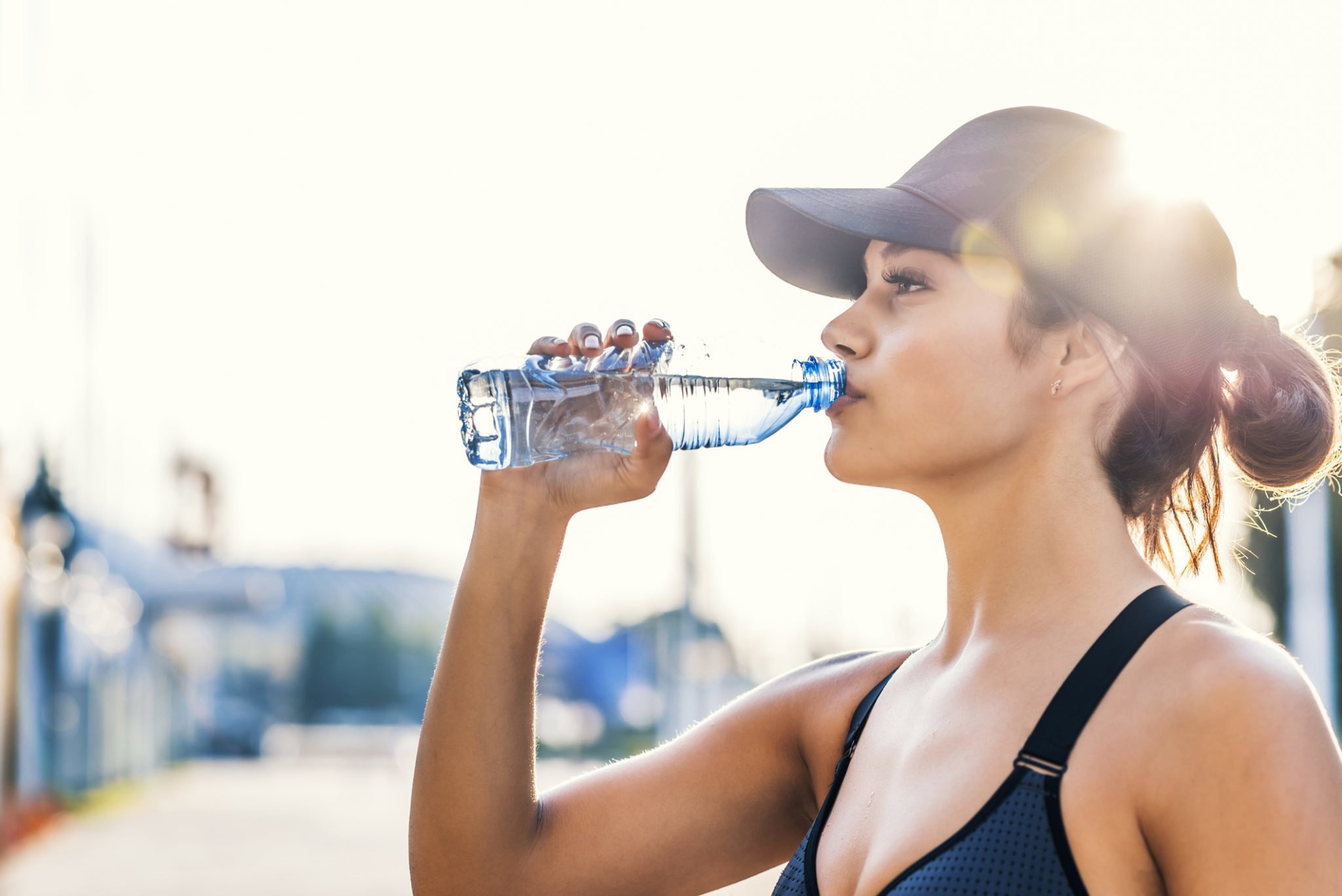
You hear it constantly: hydration is extremely important. It’s true, drinking water is one of the best things you can do for your body because water is your body’s primary chemical component. Water helps you rid your body of waste, keeps your body temperature normal, lubricates your joints, keeps your skin supple, and the list goes on. When you don’t drink enough, you risk dehydration, which can be extremely dangerous. In fact, even mild dehydration can sap your energy and make you feel weak. You’ve also probably heard that you should drink 8 glasses of water a day, but is that accurate? Not necessarily. The amount of water you drink is somewhat subjective and depends on a variety of factors. So, knowing how much your body needs water, how much water should you be drinking daily?
According to the U.S. National Academies of Sciences, Engineering, and Medicine, the appropriate daily fluid intake for an average, healthy adult is 15.5 cups a day for men and 11.5 for women. Does that seem excessive? Don’t worry, you don’t have to drink that much water. That amount includes fluid not just from water, but also from other beverages and food. You’ll need to get about 80 percent of that fluid from beverages, and the other 20 percent will come from the food you eat.
Essentially, most people can stay hydrated by drinking when they feel thirsty. So, what about those eight glasses? That’s not an unreasonable goal, and it’s an easy number to remember. However, some people may need more than just eight glasses. Here are some reasons you might need to drink more than that:
- Exercise: Working up a sweat means you’re losing fluid, so you’ll need to drink more water to make up for it. A good rule of thumb is to drink water before, during and after you work out.
- Heat: When it’s hot or humid out, you’ll need more fluid. It’s important to note, though, that higher altitudes than you’re used to can cause dehydration, whether or not it’s hot.
- Illness: If you’ve been sick with a fever, vomiting or diarrhea, your doctor will tell you to “force fluids.” This is because you’ve lost fluids. If you’ve got a bladder infection or urinary tract stones, you’ll need more water to flush your system.
- Pregnancy and breast-feeding: Supporting another human with your body means you need to drink extra water.
Aside from drinking water, you can also eat your fluids. Fruits and vegetables, for example, are great for upping your fluid intake. When you don’t feel like drinking water, but you’re thirsty, milk, juice, herbal teas and even coffee can boost your fluid intake. But limit your sugary drinks because soda, energy and sports drinks, and other sugar-sweetened beverages can contain far more empty calories than you should consume.
How do you know if you’re drinking enough? If you don’t tend to feel thirsty, and your urine is light yellow or colorless, you’re probably well-hydrated. If you’re concerned, talk to your doctor. In the meantime, to make sure your body is getting the fluid it needs, drink water with meals, between meals, before, during and after a workout, and any time you feel thirsty. It’s rare that a healthy, well-nourished adult will drink too much water, so drink as much as you feel like drinking!
Whenever you need fitness advice, trust the Wellbridge Family of Athletic Clubs, where we offer world-class training that keeps up-to-date with the latest in health and wellness. At our clubs, you’ll be greeted by our friendly team before you’re challenged and motivated by top-notch instructors in our fitness classes. You’ll make new friends because you belong here. Join today or contact us to learn more.